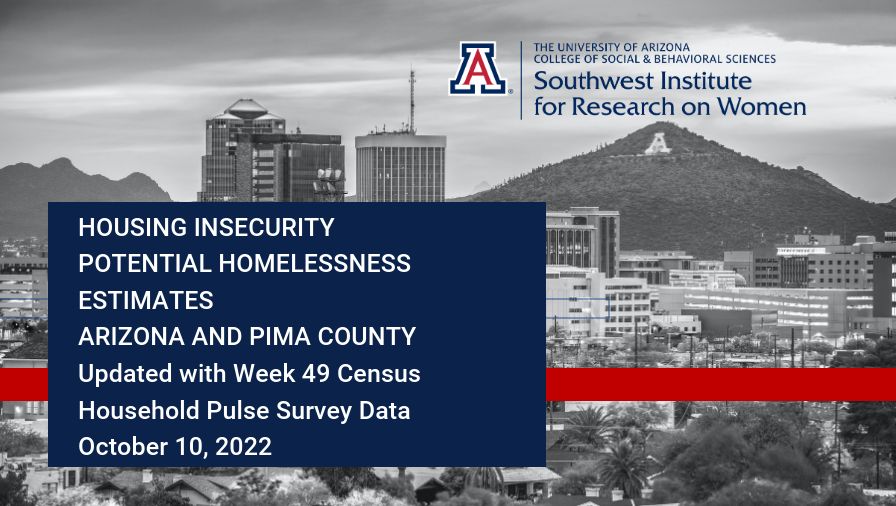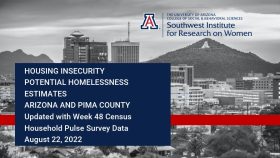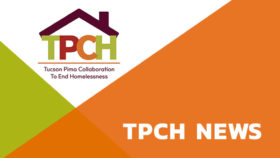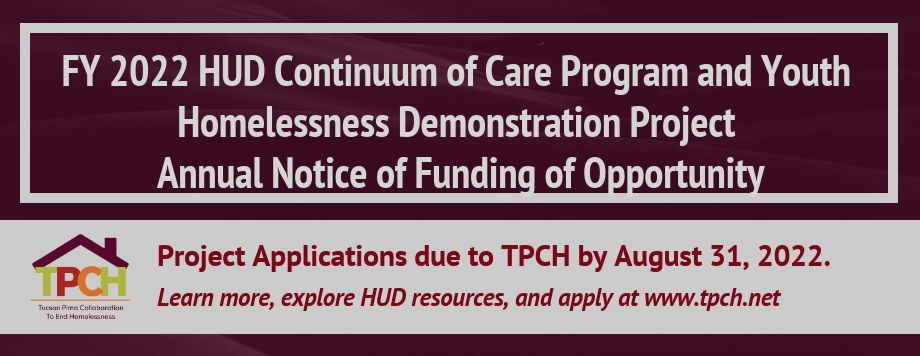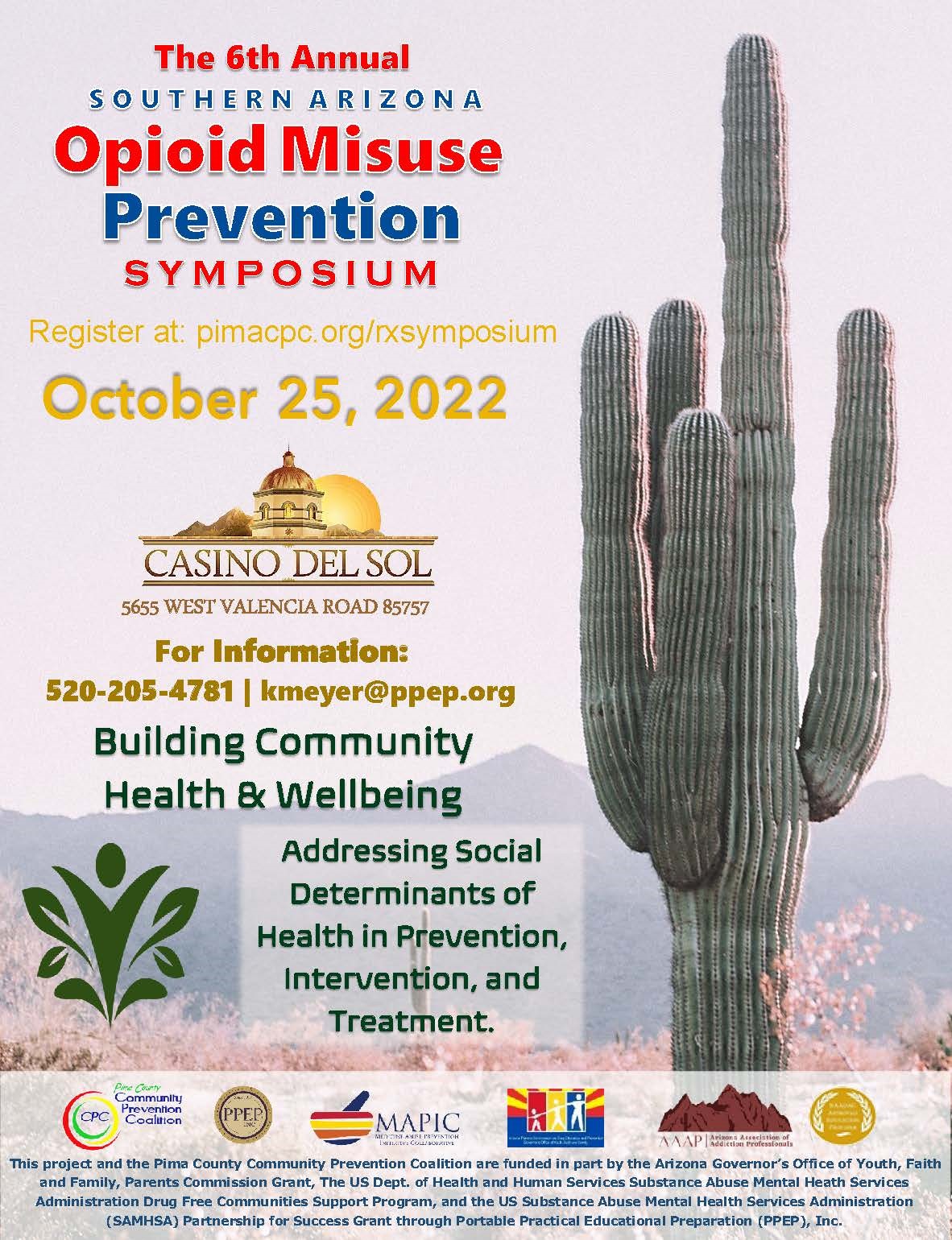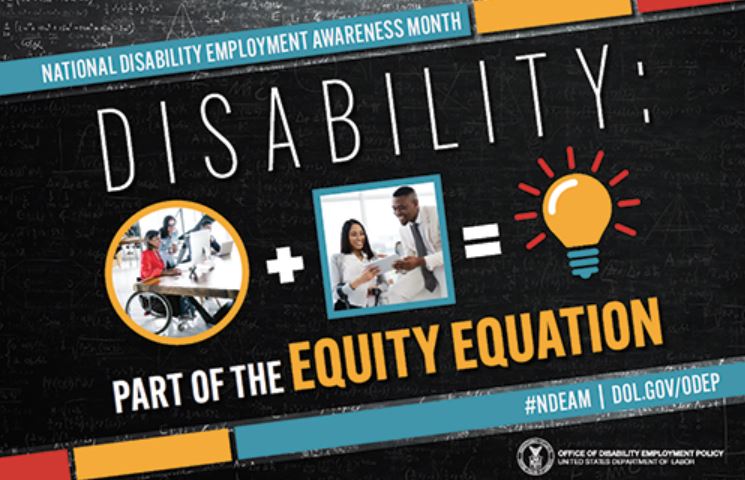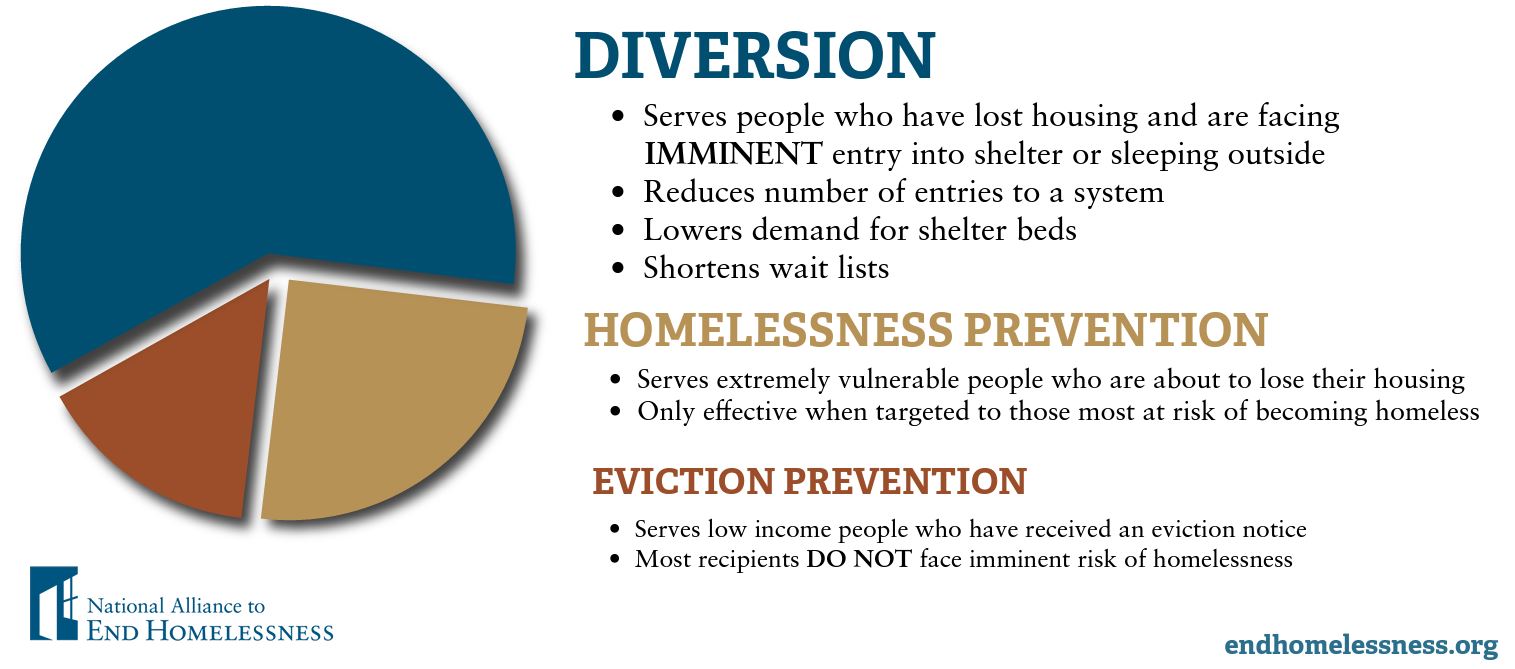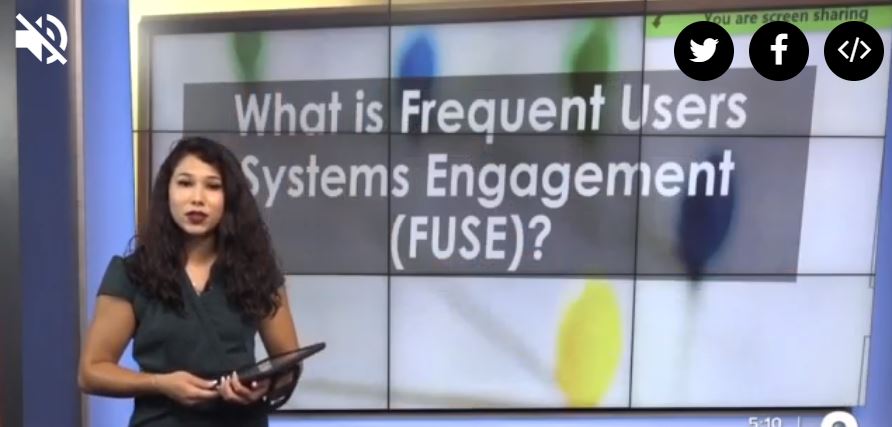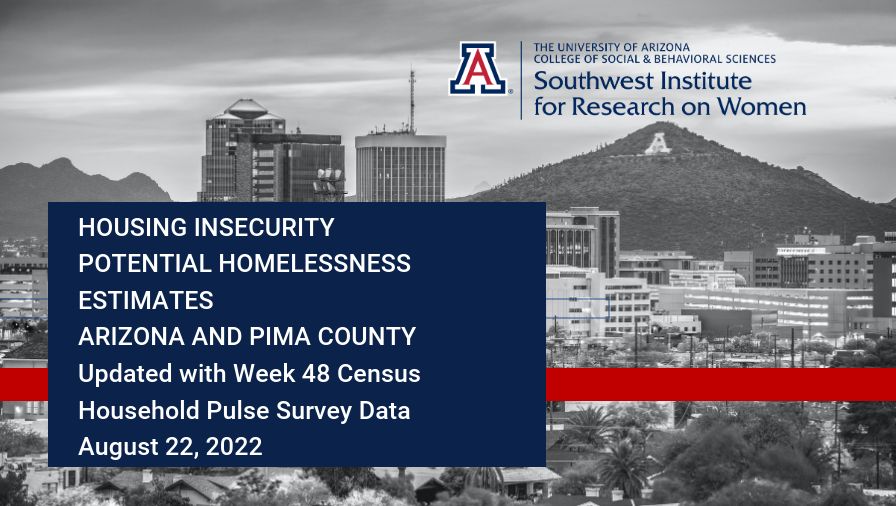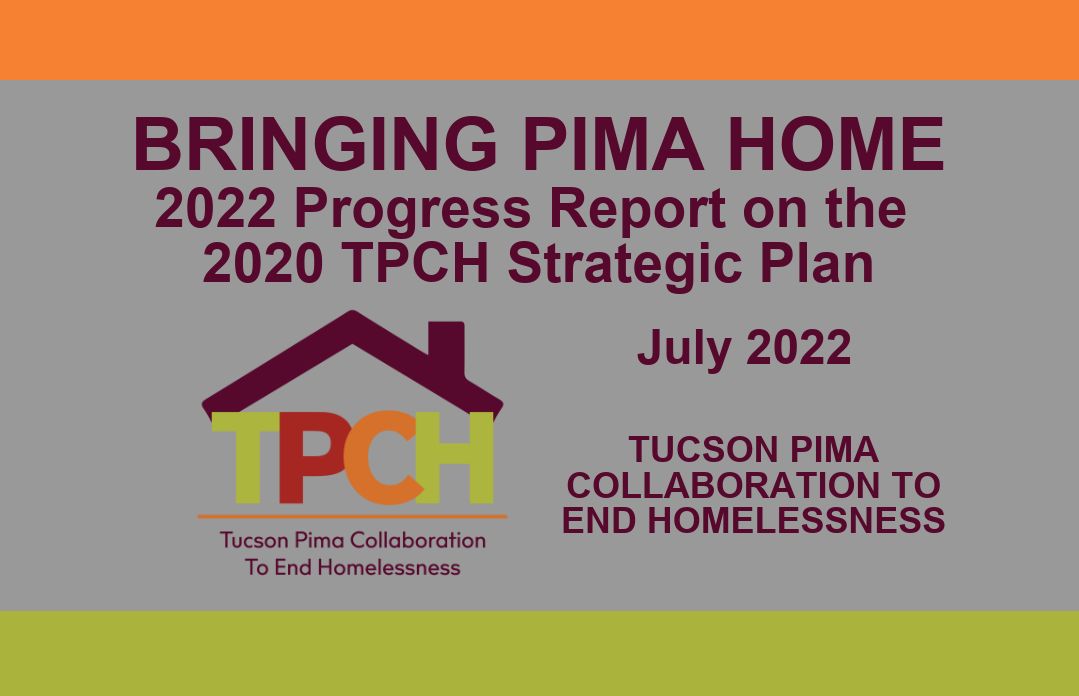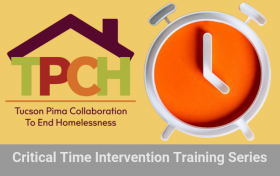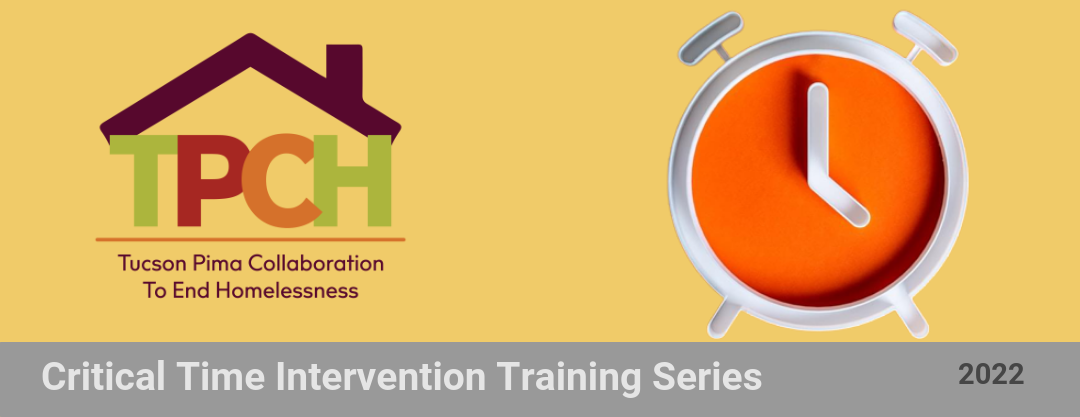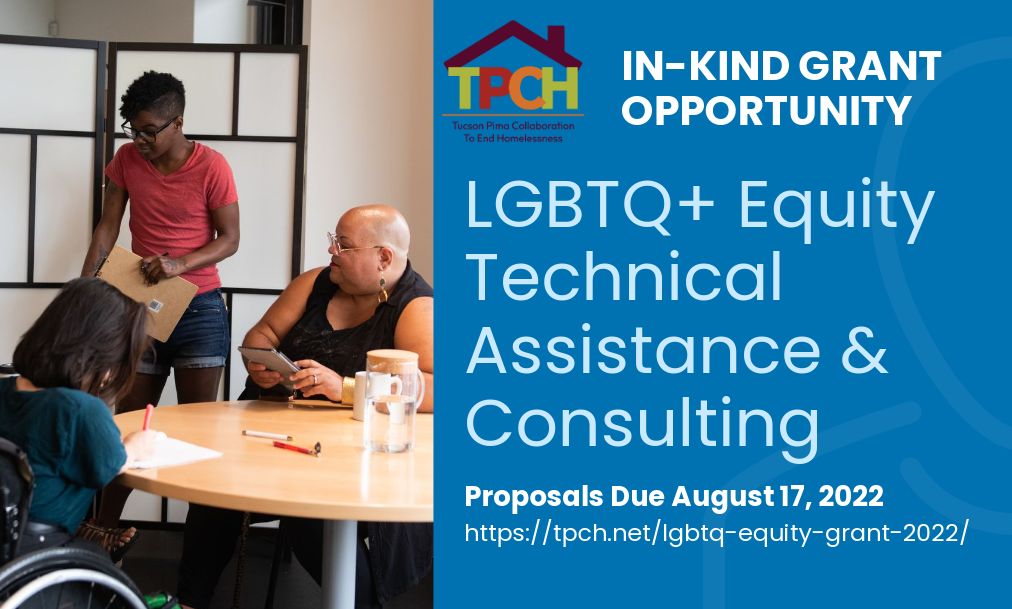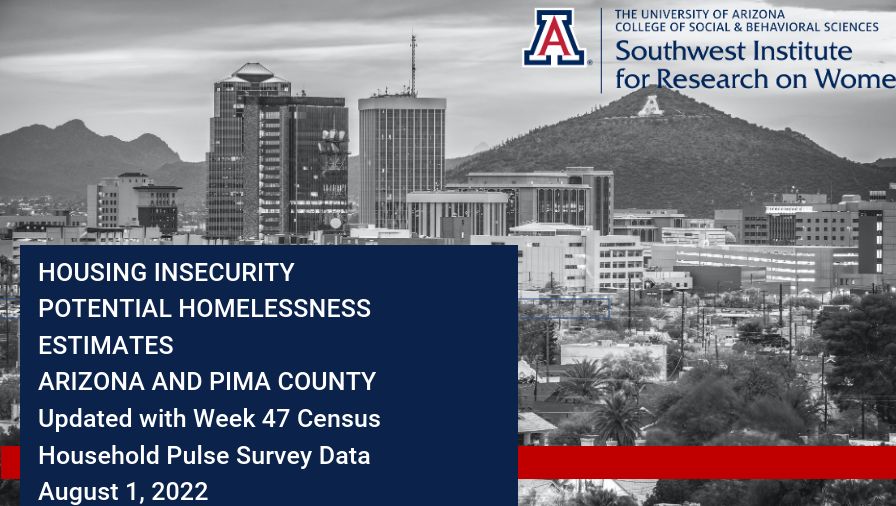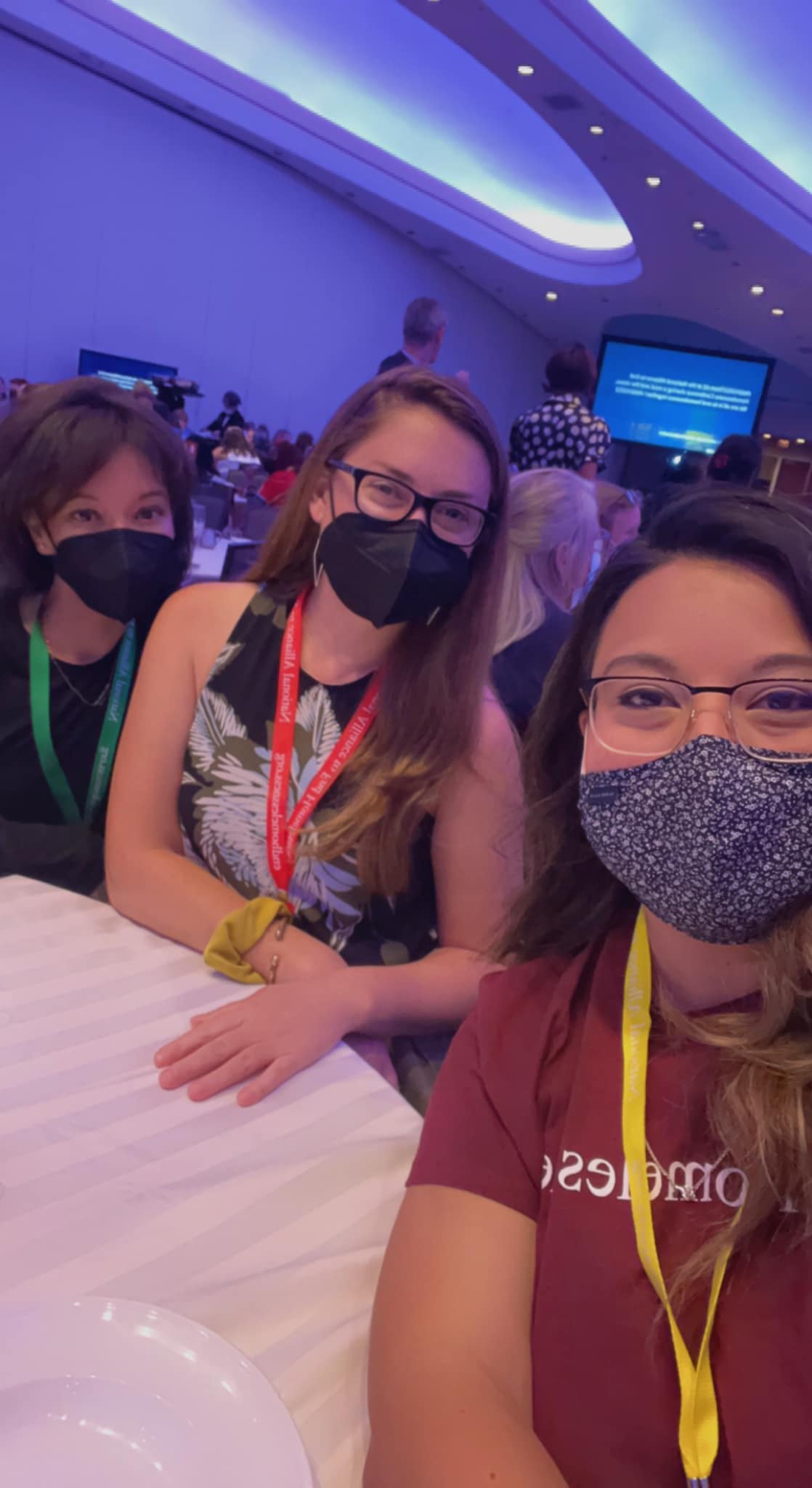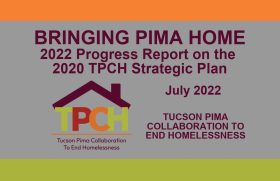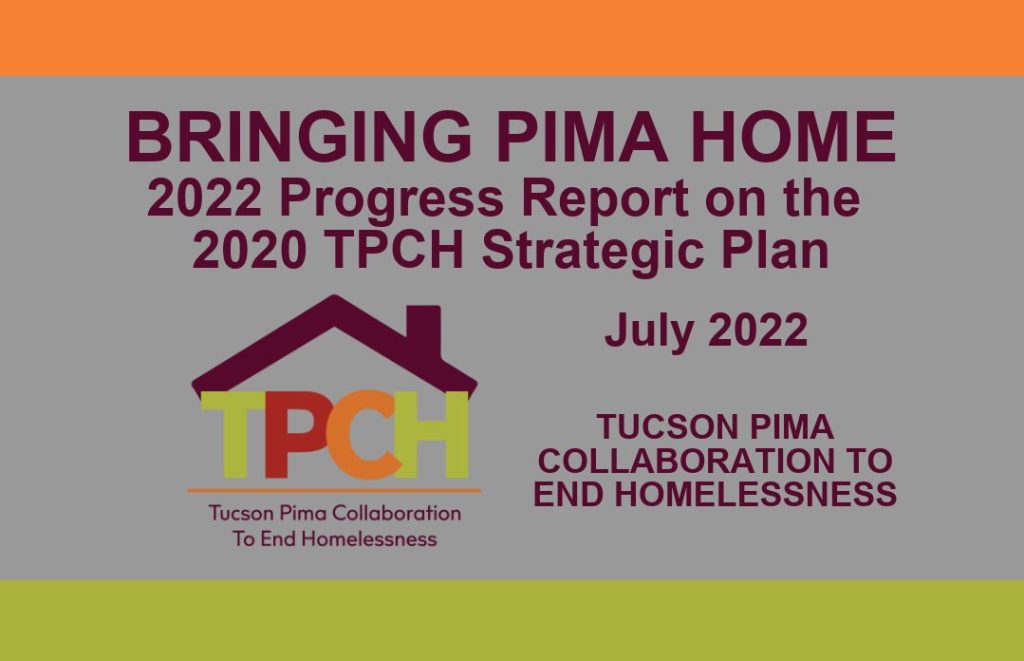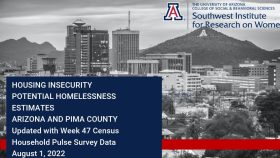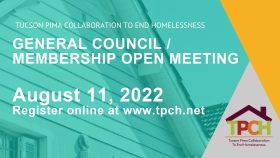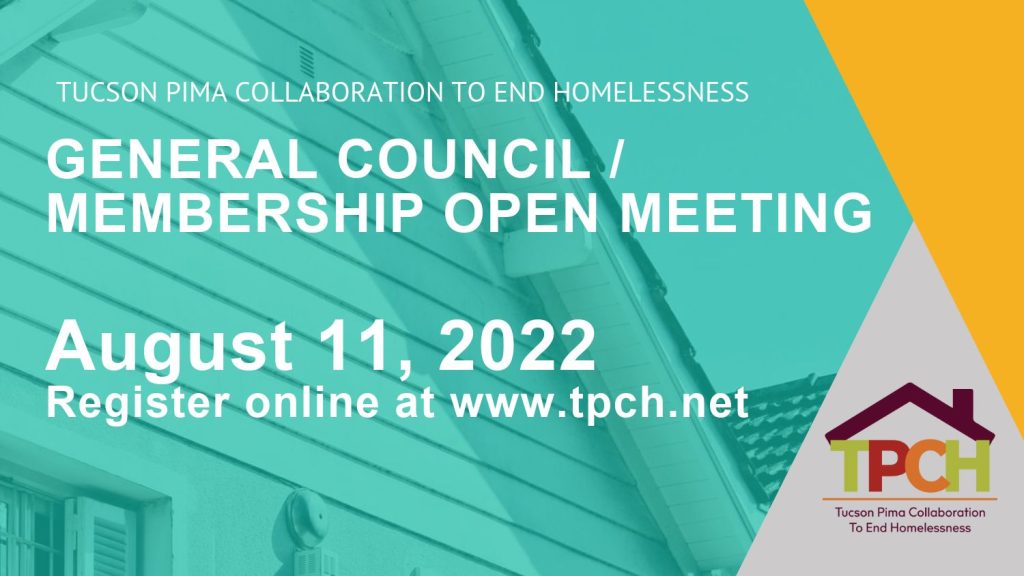IN THIS ISSUE
Project Applications for FY 2022 HUD Supplemental Funding due Monday, September 19, 2022
TPCH and Pima County Health Department Host Monkeypox Webinar for Homeless Service Providers
TPCH to Offer Fourth Critical Time Intervention Session for Supervisors
Community Funding Opportunities
Pronouns: Why They Matter
Featured Blog Post: Improving Assistance to LGBTQ+ Individuals
Resource Corner: Upcoming Tools, Trainings, and Resources
Project Applications for FY 2022 HUD Supplemental Funding for Unsheltered Homelessness due Monday, September 19, 2022
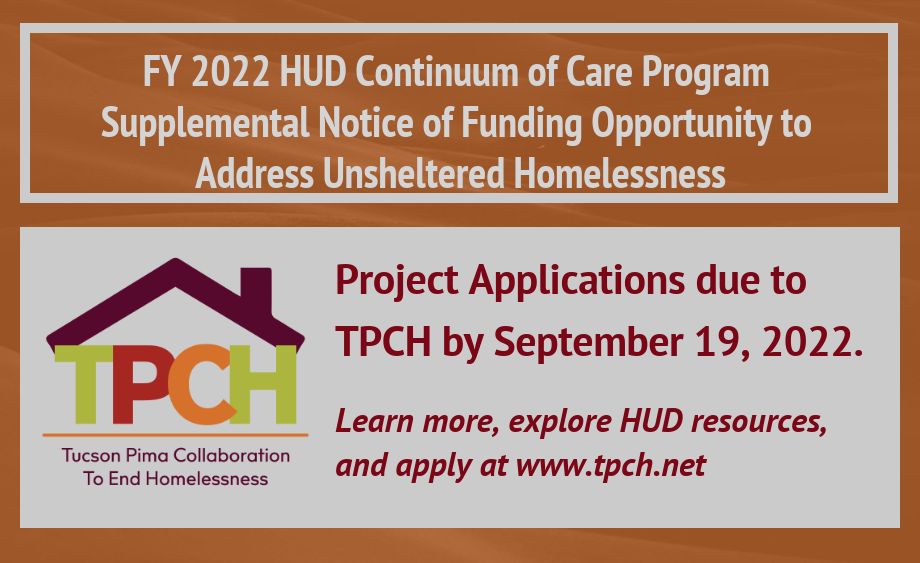
On August 12, 2022, TPCH released its local application for the the FY 2022 HUD Supplemental Funding Opportunity to address Unsheltered Homelessness.
To view the application materials, instructions, and all HUD resources, visit the TPCH FY 2022 Supplemental NOFO Headquarters page.
Any questions for how to apply should be sent to tpch-nofo@tucsonaz.gov.
TPCH and Pima County Health Department Host A Webinar: Supporting People Experiencing Homelessness During the Monkeypox Outbreak
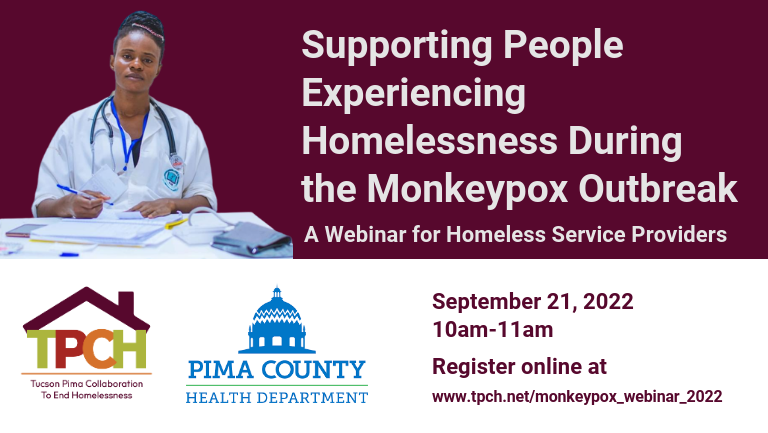
Join TPCH and the Pima County Health Department for an informative, 60-minute webinar for homeless service providers on September 21, 2022 (10am-11am)
Registration is required. Click here to register.
This virtual training session will cover:
Overview of the current monkeypox health emergency;
Monkeypox symptoms and risk factors;
Health promotion and harm reduction strategies to reduce risk of monkeypox transmission in congregate settings and among people experiencing homelessness; and
Resources for monkeypox testing and vaccination for high-risk community members.
REGISTER HERE.
TPCH to Offer Fourth Critical Time Intervention Session for Supervisors
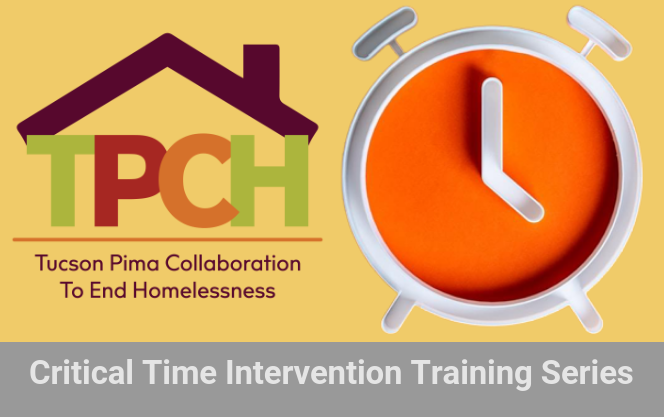
REGISTRATIONS UNDERWAY FOR SUPERVISOR SESSION, EARLIER SESSIONS AVAILABLE FOR ALL PARTNER AGENCY STAFF TO WATCH ONLINE
In April of 2022, TPCH offered three sessions on Critical Time Intervention, a time-limited and evidence-based practice that mobilizes support for vulnerable individuals during periods of transition.
The training advertised here is the fourth session of the Critical Time Intervention Series, started in April of 2022. This session is intended for supervisors and managers who completed the Basic CTI training and would like to learn additional skills for training project staff in CTI practices and managing fidelity to the evidence-based model. For supervisors who could not attend the live sessions, please see instructions below for how to access the TPCH Online Training Center.
Register here for the SUPERVISOR SESSION.
Didn’t Attend the initial CTI sessions?
Don’t worry – if you couldn’t attend the live sessions, the recorded session are posted on the TPCH Online Training Center for you to be able to view. These first three sessions are available for all staff (not just supervisors!) of TPCH partner organizations.
REGISTER FOR THE SUPERVISOR SESSION HERE.
Additional Summer Sun Cooling Stations Available for People Experiencing Homelessness
In readiness for instances of extreme heat, the City of Tucson and the Pima County Kino Service Center will have available cooling center locations. The information is available for download, click on the images below.
As temperatures rise, please continue to share the following resources widely.
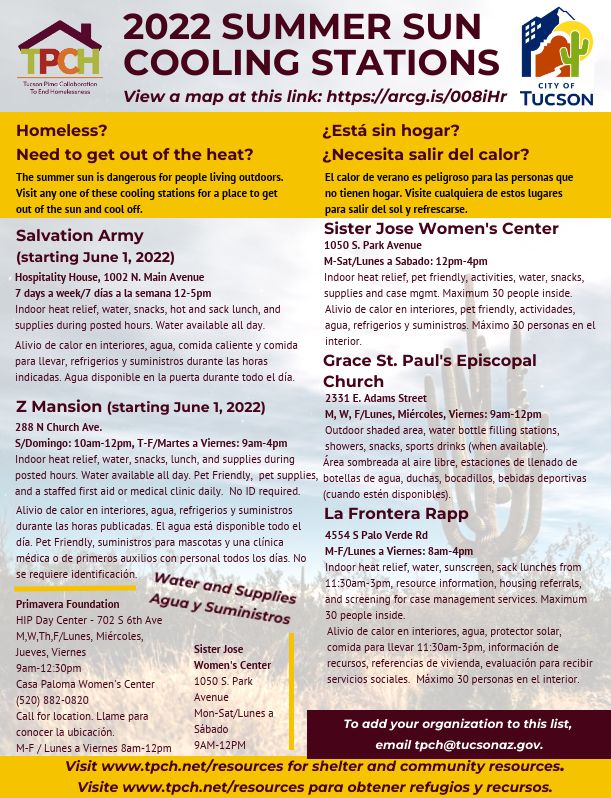 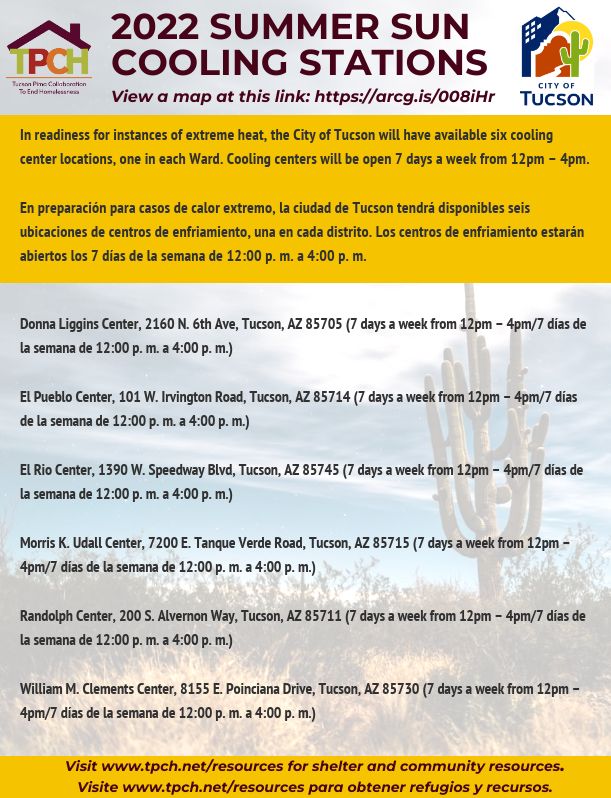
Download the 2022 Summer Sun Cooling Station flyer (English and Spanish) here.
For a map of these cooling centers. hydration stations, pools and splash pads, see this link.
Funding Opportunities
BANNER UNIVERSITY HEALTH PLANS IS NOW ACCEPTING APPLICATIONS FOR THE CY22-23 COMMUNITY REINVESTMENT PROGRAM
Banner University Family Care (B-UFC) will make community reinvestment funding available to organizations tackling health equity. B-UFC is currently seeking proposals related to Social Determinants of Health (SDOH) with an emphasis on Health Equity and addressing social risk factors.
Health Equity is the state in which everyone has a fair and just opportunity to attain their highest level of health. SDOH are the living conditions that affect a person’s ability to be healthy, increase health care costs, and contribute to disparities in health equity.
Applications must be received by close of business on Friday, September 30, 2022, to be considered. Learn more at the link.
HELLENE HENRIKSON FUND OF THE LUTHERAN CHURCH OF THE FOOTHILLS TO FUND $15,000 TO ORGANIZATIONS WORKING TO COMBAT HOUSING INSECURITY
Nonprofit organizations are invited to submit an application for up to $15,000 total (direct and indirect) for the Fall 2022 grant solicitation. A total of $60,000 will be granted, with the objective of funding 2 to 4 applications.
Basic Eligibility Requirements:
The applicant must be a 501(c)(3) in good standing, based in and doing charitable work in Southern Arizona, specifically Pima County, Santa Cruz County, Cochise County.
The organization must have local leadership in the form of a board of directors or advisory committee, local financial support, and local program management and accountability. In the case of nationally sponsored organizations, no portion of the grant can be used to support the national, state, or regional entity.
Grants are generally not made to individuals, for-profit organizations, government entities, capital fund drives, agency endowments, individual schools, or for sectarian purposes.
Organizations will not be eligible to reapply until the next grant solicitation.
Learn more and apply at the link.
Pronouns: Why They Matter
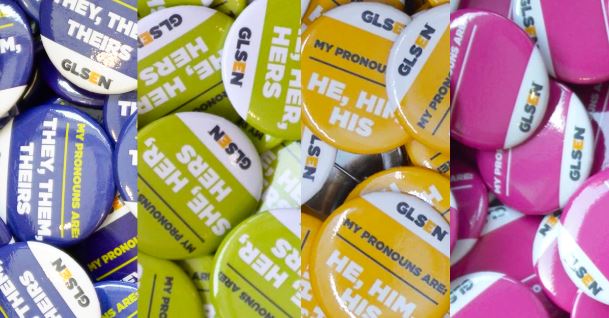
Why Focus on Pronouns?
You may have noticed that people are sharing their pronouns in introductions, on name tags, and at the beginning of meetings. This gives everyone in the room the opportunity to self identify instead of assuming someone’s identity or which pronouns they use. Including pronouns is a first step toward respecting people’s identity and creating a more welcoming space for people of all genders.
How Is This More Inclusive?
Pronouns can sometimes be a signifier for someone’s gender identity but not always. We do not want to assume people’s gender identity based on expression (typically shown through clothing, hairstyle, mannerisms etc.) By providing an opportunity for people to share their pronouns, you’re showing that you’re not assuming that their gender identity is based on their appearance.
To learn more, access this guide from GLSEN. Additionally, all staff at TPCH partner organizations can access the TPCH Online Training Center to watch the recorded sessions of our LGBTQ Equity Series to dive even deeper.
READ MORE HERE.
Featured Blog Post: Improving Assistance to LGBTQ+ Individuals
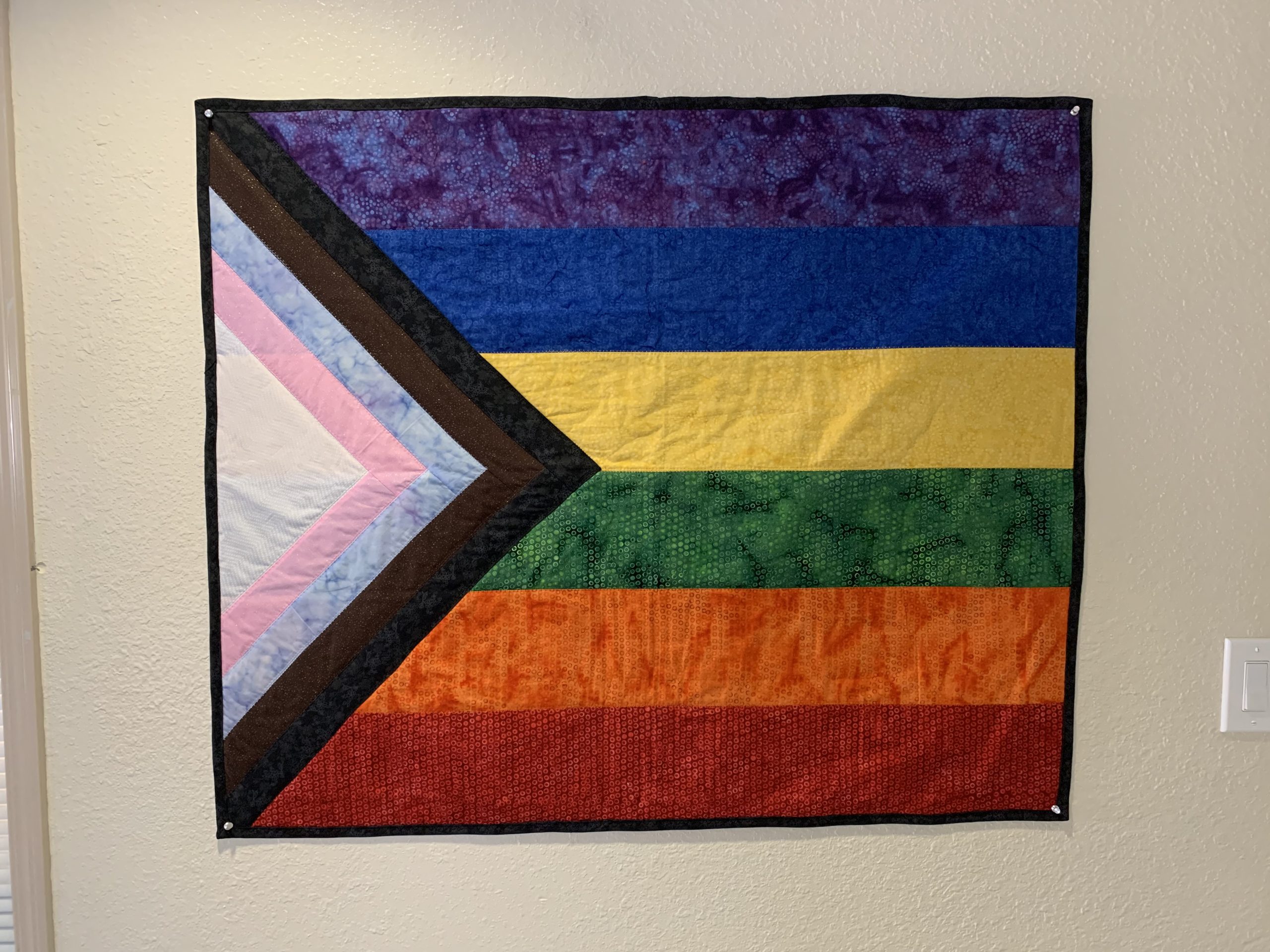
Pictured above is a flag at Bread and Roses, a youth crisis transitional housing program funded through the Youth Homelessness Demonstration Project. The colors depicted here represent queer and trans people of color, who constitute some of the most vulnerable communities navigating our homeless response system. (Source: https://outrightinternational.org/content/flags-lgbtiq-community)
The National Alliance to End Homelessness has recently published a blog post addressing some strategies CoCs (continua of care) can take to better serve LGBTQ+ individuals. Those could include:
Issue overtures to potential partner organizations to join the CoC membership and build the CoC’s expertise in assisting LGBTQ+ individual experiencing homelessness;
Schedule a time with providers and people with lived experience to review the CoC’s nondiscrimination policies and solicit input on how they can be updated;
Develop a process for monitoring noncompliance with nondiscrimination policies; and
Schedule trainings for providers on the Equal Access to Housing in HUD Programs Regardless of Sexual Orientation or Gender Identity Rule, and the Equal Access in Accordance with an Individual’s Gender Identity in Community Planning and Development Programs Rule.
READ THE BLOGPOST HERE.
Resource Corner: Tools, Conference Opportunities and Upcoming Trainings
ALLYSHIP IN OWNERSHIP: ETHICAL PROPERTY OWNERSHIP IN THE HOUSING CRISIS
Calling all property owners: Allyship in Ownership is a 4 week course (with each session lasting three hours) dedicated to discussing what it means to own property and collect rent in an ethical and equitable way. With rents going up dramatically and the increasing housing crisis, this training will look at how property owners can take action to mitigate some of the pressing issues, both current and historical.
In addition to the 3 hour sessions once per week, for a total of 12 hours of facilitated learning and connecting, participants can expect to make time for homework in the way of journaling, reflection, reading and/or listening assignments between session as well as ‘pod’ or small groups – that meet up once/week between meetings.
Register with the link! https://www.justicemovement.org/allyship-in-ownership
ALLYSHIP IN OWNERSHIP: ETHICAL PROPERTY OWNERSHIP IN THE HOUSING CRISIS
Calling all property owners: Allyship in Ownership is a 4 week course (with each session lasting three hours) dedicated to discussing what it means to own property and collect rent in an ethical and equitable way. With rents going up dramatically and the increasing housing crisis, this training will look at how property owners can take action to mitigate some of the pressing issues, both current and historical.
In addition to the 3 hour sessions once per week, for a total of 12 hours of facilitated learning and connecting, participants can expect to make time for homework in the way of journaling, reflection, reading and/or listening assignments between session as well as ‘pod’ or small groups – that meet up once/week between meetings.
Register with the link! https://www.justicemovement.org/allyship-in-ownership
MONKEYPOX GUIDANCE FOR SERVICE PROVIDERS SERVING PEOPLE LIVING IN CONGREGATE SETTINGS
The National Health Care for the Homeless Council has gathered several resources from the Center for Disease Control and the National Health Care for the Homeless Council to advise service providers on how to safely serve those living in encampments or other congregate settings. Those are listed here:Fact Sheet: Monkeypox and People Experiencing Homelessness (National Health Care for the Homeless Council)
Considerations for Reducing Monkeypox Transmission in Congregate Living Settings (CDC)
FREE CHEST BINDERS AVAILABLE TO TRANS AND NONBINARY YOUTH IN NEED
Point of Pride provides free chest binders (specially-designed chest compression garments) to any trans person who needs one and cannot afford or safely obtain one. Please visit the website using this link for information and instructions for how to apply to this program: https://www.pointofpride.org/free-chest-binders
NATIONAL ALLIANCE TO END HOMELESSNESS HOUSING FIRST WEBINAR SERIES
The National Low Income Housing Coalition, National Alliance to End Homelessness, and Center on Budget and Policy Priorities have teamed up in a four-part series on homelessness and Housing First. The remaining sessions of this series will be held on September 12th and 28th, 2022 at 2:30 PM EST (*note this is Eastern time, times are 11:30 AM Arizona time).
Register here to attend.
NATIONAL ALLIANCE TO END HOMELESSNESS PRESSURE POINTS SERIES
The Alliance’s new Pressure Points Resource Series outlines specific strategies, practices, and philosophies that can help relieve the pressures experienced by providers and systems alike.
PREPARING FOR THE NOFO WITH THE NATIONAL ALLIANCE TO END HOMELESSNESS SYSTEM SERIES
The 2022 SYSTEM Series is a new collection of webinars, blog posts, and resources designed to help communities build more effective systems to end homelessness.
The updated series addresses emerging priorities in the field, as well as insights on issues and areas the Alliance expects HUD to prioritize in the upcoming NOFO.
SEPTEMBER EVENTS
TPCH Meetings & Training Events
Meetings and events added regularly. Find details and locations on the TPCH calendar at https://www.tpch.net
September 15, 2pm
FY 2022 Continuum of Care Application Community Input Series – Special Populations: Youth, Families and Domestic Violence Survivors. RSVP at this link.
September 16, 2pm
FY 2022 Continuum of Care Application Community Input Series – CoC Processes. RSVP at this link.
September 22, 1pm
Coordinated Entry Committee
September 22, 5:30pm
Youth Action Committee
September 27, 3pm
Continuum of Care Board Meeting
For the most up-to-date meeting information, visit the TPCH calendar at https://www.tpch.net.
|
